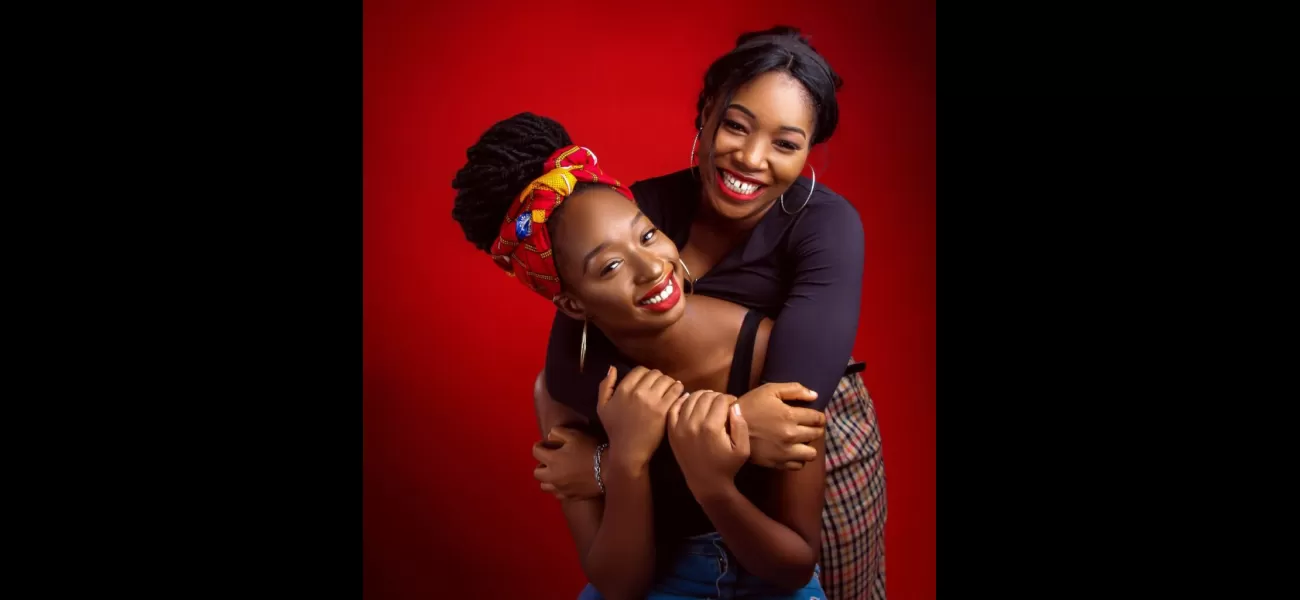Single Black women are challenging assumptions about marriage and equality through their fictive kinships.
Middle-class Black Americans increasingly creating kinships with non-blood relatives, an idea known as "fictive kinship."
December 24th 2023.

A 2017 study found that Black women have lower levels of wealth and higher levels of kinlessness as they age, however, a new report from Fortune casts doubt on these findings. According to Kris Marsh, a sociologist from the University of Maryland, the study fails to take into account the social safety net that Black women build over their lifetimes.
Marsh's book, “The Loves Jones Cohort,” argues that fictive kinships, or the practice of creating kinship with people who you do not share blood with, have been increasingly practiced by single middle-class Black Americans. This is due to the fact that policy around singleness as it currently exists is detrimental to the economic well-being of American adults.
Jessica Moorman, a professor at Wayne State University who specializes in Black women's single socialization, says that policy solutions to these issues are simple and could lead to increased political engagement. Moorman stated in an interview with Fortune, “Marital policies exacerbated [an] already grim economic reality. I would argue that because more than half of this country is unmarried, that is one of the largest political causes of voters we could possibly have, right? All you need is half of all singles to get on the same page politically about something.”
Moorman also identified a trend among Black women, saying that they are cognizant of their status and actively seek to create kinships out of friendships.
Carlene Davis, a 57-year-old Black woman from Los Angeles, is a prime example of this trend, telling Fortune, “My healthcare power of attorney is a friend who I’ve known since kindergarten. I have a list in my trust of people to whom I have given HIPAA authorization.”
Psychologist Bella DePaulo, who studies the single experience, also weighed in, saying that “research shows that single people are more likely than married people to stay in touch with their friends, parents, siblings, and neighbors and exchange help with them.” DePaulo believes that singles conceptualize their lives around friends, saying they have “The Ones” rather than “The One.”
Geoffrey Sanzebacher, an economics professor at Boston University, believes that marriage reinforces the system of inequality that birthed it. Sanzebacher says that it is unfair that employers treat marriage with regard to health insurance and Social Security benefits, noting that “single people aren’t getting the same bang for their buck out of their social security contributions that a married person would.”
In response to this, Davis co-founded a public policy project called Sistahs Aging With Grace and Elegance, which focuses on Black women. Her mission is to create equity for aging Californians, with Davis saying, “I wanted to think about what would equity in aging look like for Black women in California.”
Many experts agree that the de facto link between marriage and better protections within systems like health insurance and social security benefits needs to change. DePaulo notes that “everyone deserves the basics of human dignity” and that “a person’s value is not defined by their marital or romantic relationship status, and their rights, benefits, and protections should not be linked to those statuses.”
Marsh's book, “The Loves Jones Cohort,” argues that fictive kinships, or the practice of creating kinship with people who you do not share blood with, have been increasingly practiced by single middle-class Black Americans. This is due to the fact that policy around singleness as it currently exists is detrimental to the economic well-being of American adults.
Jessica Moorman, a professor at Wayne State University who specializes in Black women's single socialization, says that policy solutions to these issues are simple and could lead to increased political engagement. Moorman stated in an interview with Fortune, “Marital policies exacerbated [an] already grim economic reality. I would argue that because more than half of this country is unmarried, that is one of the largest political causes of voters we could possibly have, right? All you need is half of all singles to get on the same page politically about something.”
Moorman also identified a trend among Black women, saying that they are cognizant of their status and actively seek to create kinships out of friendships.
Carlene Davis, a 57-year-old Black woman from Los Angeles, is a prime example of this trend, telling Fortune, “My healthcare power of attorney is a friend who I’ve known since kindergarten. I have a list in my trust of people to whom I have given HIPAA authorization.”
Psychologist Bella DePaulo, who studies the single experience, also weighed in, saying that “research shows that single people are more likely than married people to stay in touch with their friends, parents, siblings, and neighbors and exchange help with them.” DePaulo believes that singles conceptualize their lives around friends, saying they have “The Ones” rather than “The One.”
Geoffrey Sanzebacher, an economics professor at Boston University, believes that marriage reinforces the system of inequality that birthed it. Sanzebacher says that it is unfair that employers treat marriage with regard to health insurance and Social Security benefits, noting that “single people aren’t getting the same bang for their buck out of their social security contributions that a married person would.”
In response to this, Davis co-founded a public policy project called Sistahs Aging With Grace and Elegance, which focuses on Black women. Her mission is to create equity for aging Californians, with Davis saying, “I wanted to think about what would equity in aging look like for Black women in California.”
Many experts agree that the de facto link between marriage and better protections within systems like health insurance and social security benefits needs to change. DePaulo notes that “everyone deserves the basics of human dignity” and that “a person’s value is not defined by their marital or romantic relationship status, and their rights, benefits, and protections should not be linked to those statuses.”
[This article has been trending online recently and has been generated with AI. Your feed is customized.]
[Generative AI is experimental.]
0
0
Submit Comment





